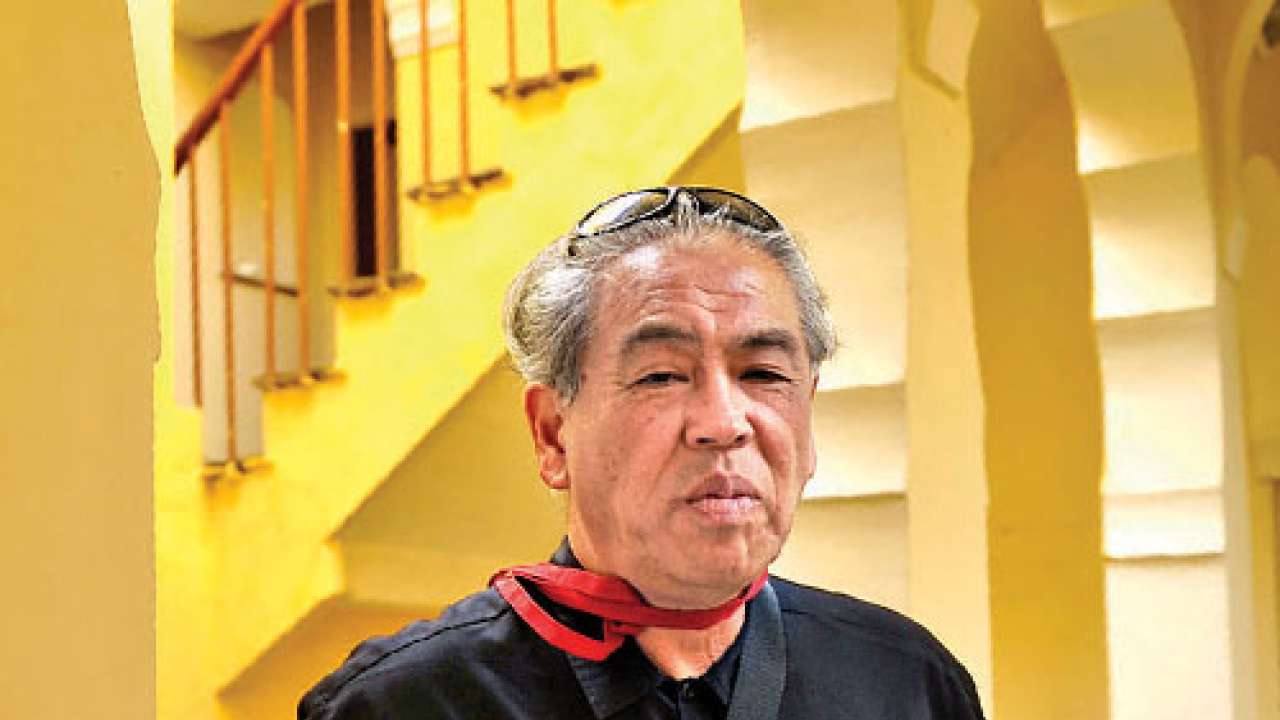
Paul Yamazaki of San Francisco book store City Lights was all over this year’s Zee Jaipur Literary Festival. He was on the stage for the 2014 DSC South Asia Literary Prize announcement as part of the jury that chose the winner, he was at the publishing forum Bookmark interacting with publishers and agents, and he was part of several panels during sessions on reading and the book trade. Gargi Gupta caught up with him during breaks to speak to him about the landmark bookstore which offers a carefully chosen collection of poetry, world literature and progressive politics attracting readers not just from the US but all over the world.
When was City Lights started and how did it become such an institution?
City Lights was established in 1953, so we just finished our 60th year. It was founded by Lawrence Ferlinghetti, a well-known poet in the United States. He added a publishing branch in 1955 and one of the first five books City Lights published was Allen Ginsberg’s Howl And Other Poems, which established us on the national and international front. Lawrence was at Ginsberg’s first public reading of Howl and sent him a telegraph that very night saying that this was the launch of a great poetic voice and asked when he could get the manuscript. Lawrence knew it was controversial but he didn’t back away. A lot of trouble came with the publication, he and the store manager were arrested for selling a so-called obscene book. It became a landmark trial for freedom of expression. DH Lawrence’s Lady Chatterly’s Lover or Henry Miller’s Tropics wouldn’t have come out in the US if it hadn’t been for this trial.
How large is the store?
The store has around 2,100 square feet of retail space — the original space was 400 sq ft. There is no provision for coffee but benches where a reader can sit quietly with a book.
That isn’t too big, so how do you decide what books to stock?
A bookstore is somewhat like an ocean — it may look the same but it is always changing if you are a careful observer. We really believe in backlists (older books kept in print by publishers) but it’s tough to decide what to keep, and which titles to get back. There are all kinds of circumstances under which a book will be sold — either a new book is out or the author has won an award; in case of authors not with us, the question is if the book will contribute to a current discussion. It takes a lot of reading, which is why having good staff is so important.
So would each of them know exactly where a book is?
In most cases they would, or they could tell you where it should be. But it’s not just about the physical book, but about helping the reader find what he is looking for next.
How did you associate with the store?
I was a political activist and I was incarcerated for six months. In order to come out a month earlier, I needed someone to say they would employ me. I had a friend who went up to the general manager and told him about me. I got a job and have been there ever since.
With changing times, big bookselling chains, and now the e-tailers, how have you survived?
There was a time in the ‘80s when we were on the verge of closing down, just days from it because we were so far back in our dues. It was a generous time 30 years ago, so the publishers decided to give us time.
Have you been to a book store in India?
No, unfortunately I haven’t. But before coming here, we were at Seagull in Kolkata, which also has a publishing programme. And it was fantastic to see what Naveen [Kishore] had done.
Have you published any Indian author?
Yes, we have. We were the only American publisher to bring out the Hungry Generation poets. Ginsberg had met them in Kolkata and one of the things that Ferlinghetti asked me to do on this trip was to find out poets who were angry and significant.